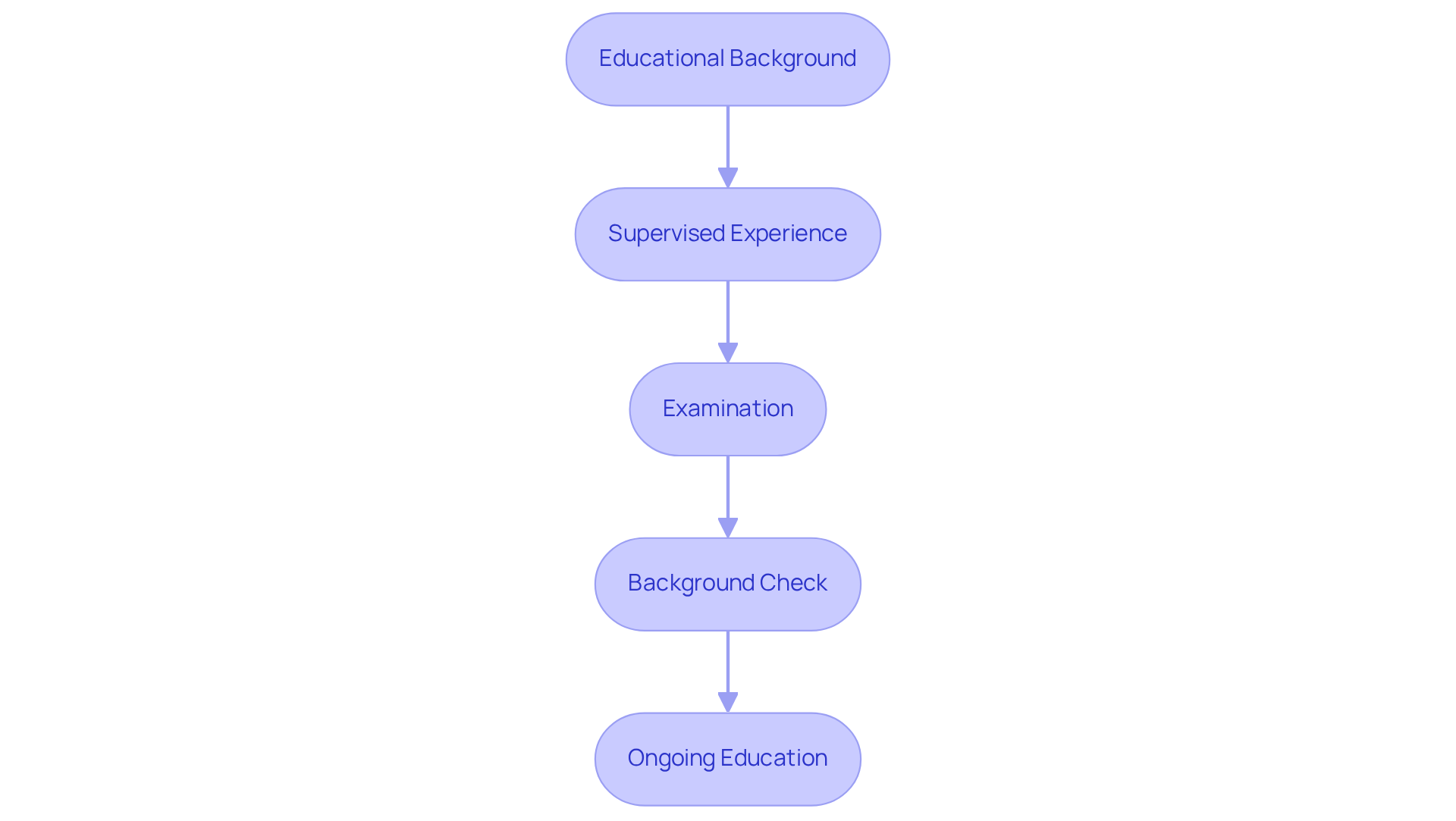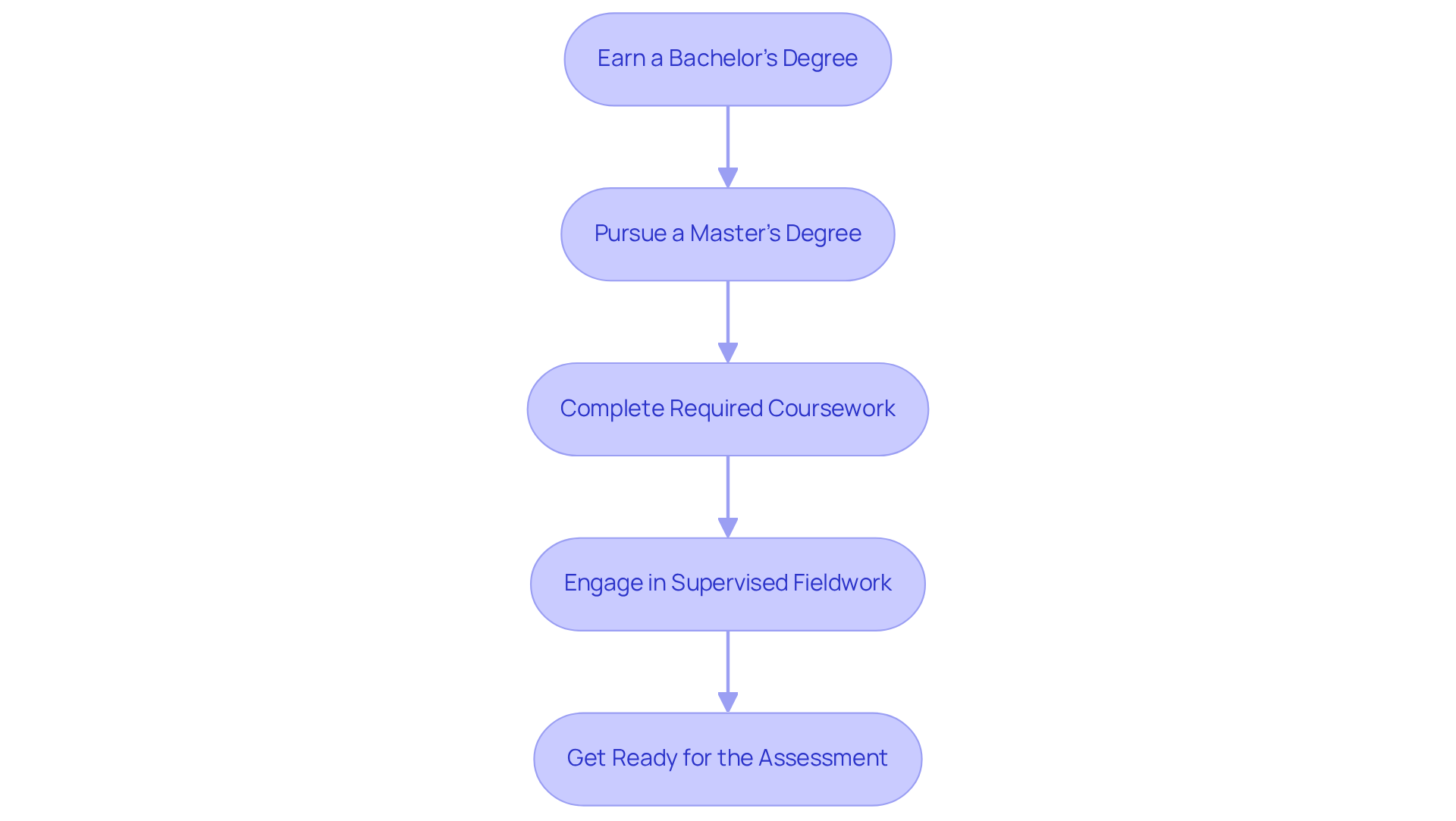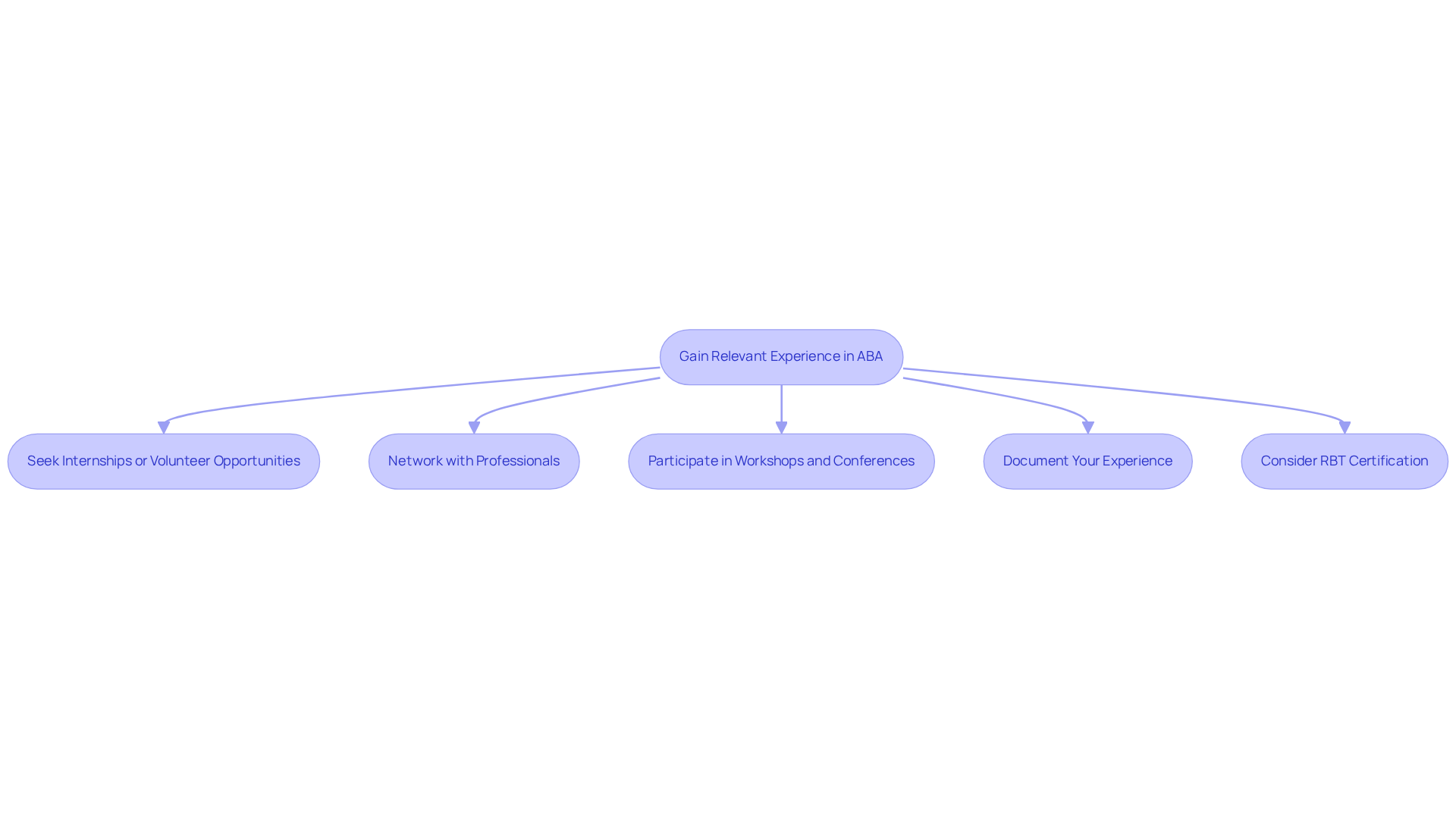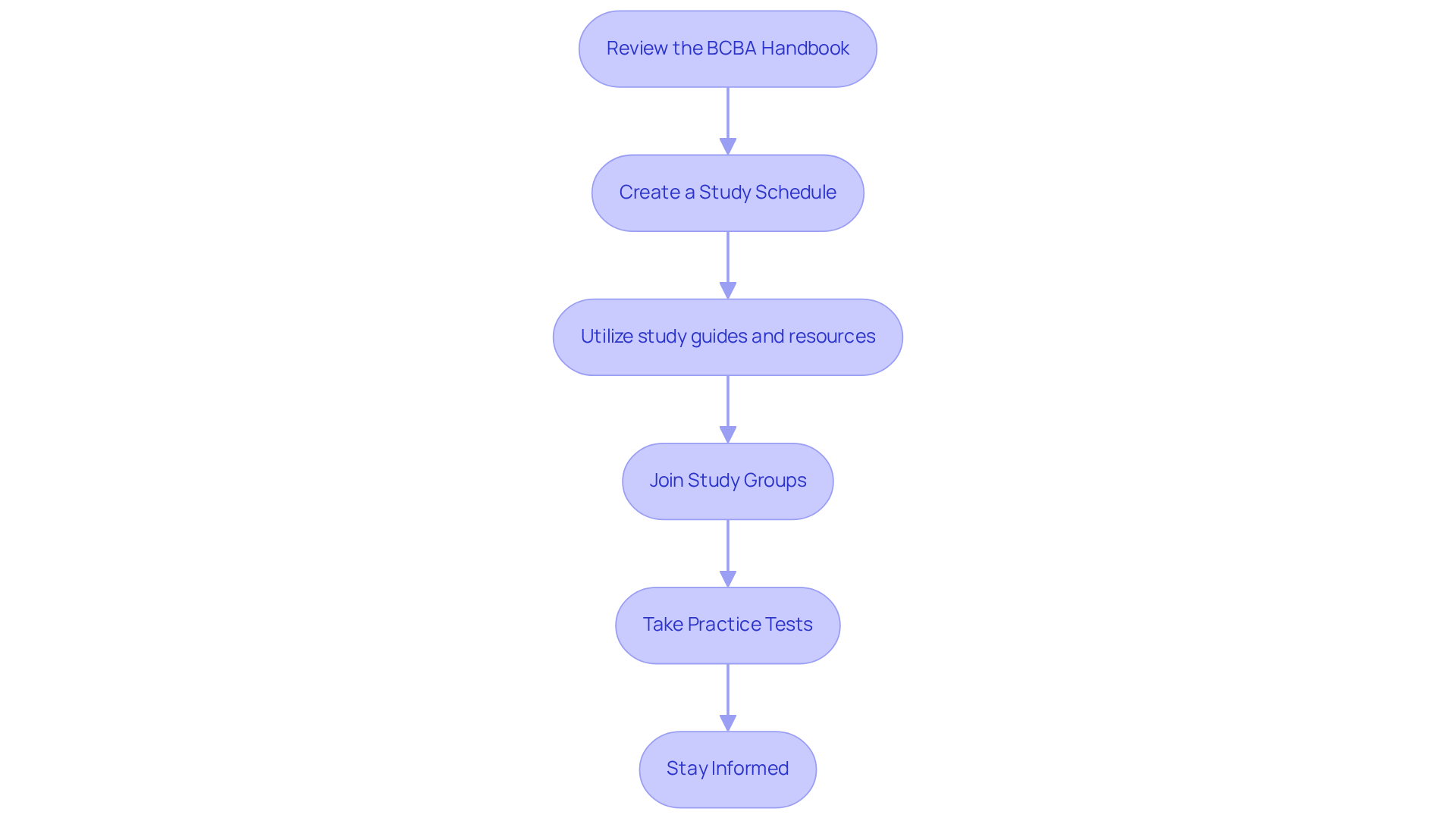June 28, 2025

To achieve your applied behavior analysis certification, it is essential to complete specific educational requirements, gain supervised experience, pass the BCBA examination, and commit to ongoing education. The demand for Board Certified Behavior Analysts (BCBAs) continues to rise, making this certification not only a professional milestone but also a pathway to impactful work in the field.
A master's degree is a foundational element in this journey, paired with supervised fieldwork that provides practical experience. Preparation for the BCBA examination is critical; it ensures that candidates possess the necessary knowledge and skills to excel in their roles. Each of these steps is vital for establishing expertise and credibility in applied behavior analysis.
As you navigate these requirements, consider the benefits of utilizing platforms like Hire ABA for recruitment. They can help streamline the process, connecting you with qualified candidates who meet these rigorous standards. Reflect on your current hiring challenges—how can Hire ABA assist you in overcoming them?
In conclusion, committing to ongoing education and professional development is not just a requirement; it is a commitment to excellence in the field of behavior analysis. Take the next step in your journey towards becoming a Board Certified Behavior Analyst and explore the resources available to support your success.
The field of Applied Behavior Analysis (ABA) is experiencing an unprecedented surge in demand for certified professionals. Organizations are increasingly recognizing the profound impact of behavior analysis across various sectors. In this landscape, achieving ABA certification not only opens doors to a rewarding career but also positions individuals as leaders in a transformative discipline.
However, the path to becoming a Board Certified Behavior Analyst (BCBA) is fraught with challenges. What essential steps must one take to navigate this complex journey and secure a place among the ranks of certified experts? Understanding these steps is crucial for those aspiring to make a significant impact in the field.
To achieve your applied behavior analysis certification, it is crucial to comprehend the requirements established by the Behavior Analyst Certification Board (BACB). The demand for Board Certified Behavior Analysts (BCBAs) continues to rise, making this certification a valuable asset in the field. Here are the essential components you need to consider:
Reflect on your current hiring challenges—how can you leverage the expertise of certified BCBAs to enhance your organization's effectiveness? The journey to obtaining is not just about meeting requirements; it’s about positioning yourself as a leader in behavior analysis. Start your path today by ensuring you meet these key components and commit to lifelong learning in this dynamic field.

To embark on the essential educational pathway for ABA certification, follow these critical steps:
Earn a Bachelor’s Degree: Begin your journey with a bachelor’s degree in psychology, education, or a related field. This foundational education is crucial for your advanced studies in behavior analysis.
Pursue a Master’s Degree: Enroll in an accredited master’s program that includes the Verified Course Sequence (VCS). Seek programs that provide comprehensive coursework in behavior analysis, ethics, and research methods.
Complete Required Coursework: Ensure that your master’s program encompasses specific courses such as:
Engage in Supervised Fieldwork: During or after your master’s program, fulfill the necessary supervised fieldwork hours. This practical experience is vital for applying your theoretical knowledge in real-world settings.
Get Ready for the Assessment: After completing your educational and fieldwork obligations, prepare for the BCBA assessment. Utilize study guides, practice exams, and review courses to enhance your chances of success.
By adhering to these steps, you will be well on your way to obtaining your applied behavior analysis certification.

To gain relevant experience in the field of Applied Behavior Analysis, consider the following steps:

To effectively prepare for the BCBA examination, consider implementing the following strategies:
By following these strategies, you can enhance your preparation for the BCBA examination and increase your chances of success.

Achieving your Applied Behavior Analysis certification is not merely a professional milestone; it is a transformative journey that enhances credentials and establishes individuals as leaders in the field of behavior analysis. Understanding the requirements set forth by the Behavior Analyst Certification Board (BACB) is essential, as it lays the groundwork for a successful career dedicated to improving lives through effective behavior strategies.
This article outlines critical steps in this process, including:
Each component—from completing a master’s degree with the Verified Course Sequence to accumulating fieldwork hours and engaging in ongoing education—plays a vital role in building a robust foundation for a career in behavior analysis. Furthermore, networking with professionals and participating in industry events enriches this journey, providing invaluable insights and opportunities.
Ultimately, the pursuit of ABA certification transcends mere requirement fulfillment; it represents an invitation to contribute meaningfully to the field and make a lasting impact. Embracing this path fosters not only personal growth but also advances the standards of practice in behavior analysis. For those ready to embark on this rewarding journey, the time to start is now—commit to the necessary steps, engage with the community, and uphold the principles of behavior analysis for a brighter future in the field.
What are the educational requirements for ABA certification?
You need a minimum of a master’s degree in behavior analysis, psychology, or a related field from an accredited institution. Your program must include the Verified Course Sequence (VCS) approved by the Behavior Analyst Certification Board (BACB).
How much supervised experience is required for ABA certification?
You must accumulate at least 1,500 hours of supervised fieldwork under the guidance of a certified behavior analyst.
What examination must be passed to achieve ABA certification?
You must pass the BCBA examination, which evaluates your knowledge and competency in the principles and practices of behavior analysis.
Is a background check required for ABA certification?
Yes, a criminal background check is typically necessary as part of the accreditation process to ensure the integrity and professionalism of certified analysts.
What are the ongoing education requirements after obtaining ABA certification?
After obtaining your credential, you need to complete continuing education units (CEUs) to maintain your credentials and stay updated with the latest practices and advancements in the field.
Why is obtaining ABA certification valuable?
The demand for Board Certified Behavior Analysts (BCBAs) is rising, making this certification a valuable asset in the field of behavior analysis.
Our expert recruitment strategies and AI-driven sourcing ensure that you receive top-notch candidates quickly, without compromising on quality. Whether you’re looking for BCBAs, Clinical Directors, or RBTs, we’ve got you covered.